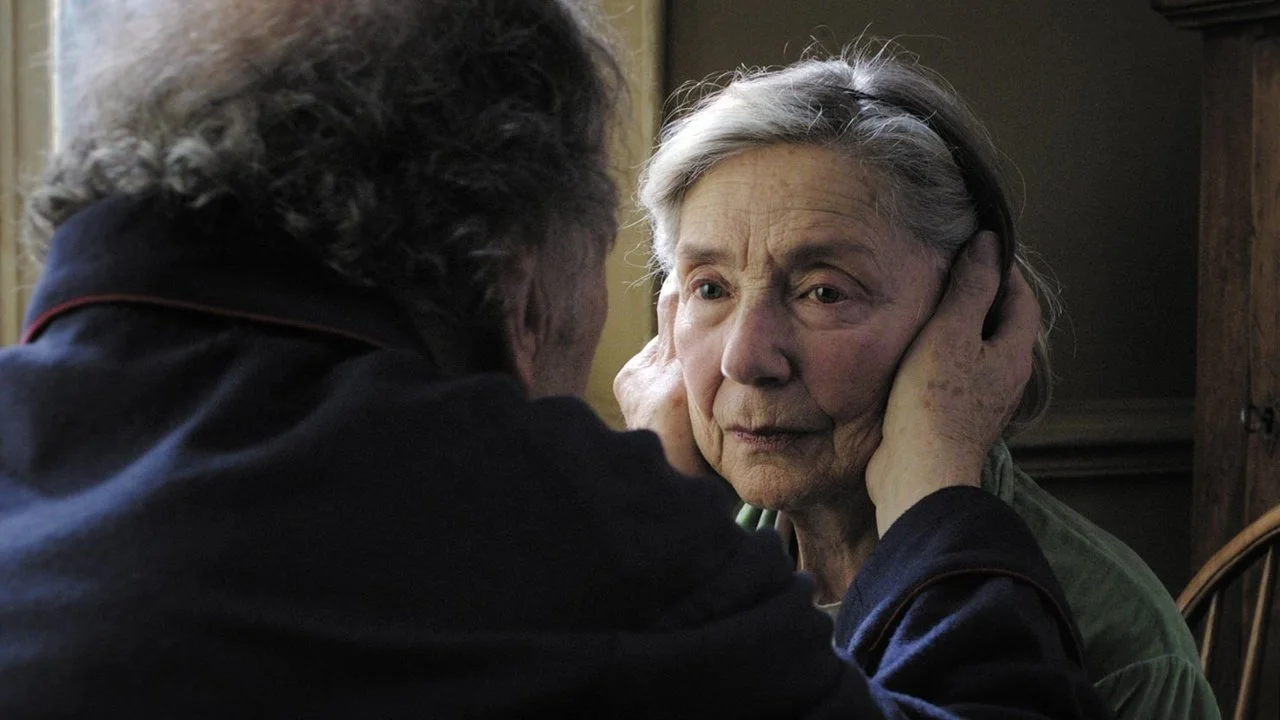Amour
★★★★★
(2012)
Michael Haneke's second Palm d'Or in as many years is a powerful, deeply sad chamber piece about the gradual disintegration of a life of love. It's something we all must face at one time or another and for that reason often it's wound around cliché and sentimentality within the realms of film. Rising scores and tears rolling down faces sitting at the side of loved one's death beds are a mainstay of cinema, the very stuff of life (and death) arguably lives more powerfully in film than it does in any other art form and Haneke's decision to eschew these staples of typical emotional powerhouse cinema make Amour a tender, real and honest story which must be seen.
Jean-Louis Trintignant and Emmanuelle Riva play Georges and Anne, two character's names which appear in nearly every Haneke film. This time our Georges and Anne are not the desperate couple of Funny Games or the terrorized George and Anne of Caché or the Ana and Georg who are driven to extremes with their family in his first film The 7th Continent. This time Haneke focuses on a more everyday type of terror, a terror much closer to home and for that reason Amour is much sadder than anything the director has made before.
Georges and Anna are retired musicians, living out a quiet and peaceful retirement in their spacious Parisian apartment, attending student's concerts (one of the only scenes outside their apartment in Amour), their real relationship is lightly but economically touched upon by Haneke. He presents them as a couple still very much in love. When Anne suffers a stroke the film unflinchingly focuses purely on what it means to be in love in the face of death, how much a person must change to take on their suddenly dying other, simply, what it means to care for someone, in every sense of the word.
Their daughter (Isabelle Huppert) and her husband's conversations with Georges are written with a subtle touch, their life and the world continues outside of the four walls of Amour but Haneke uses the threat of the outside world to only intensify Georges true fear of losing his wife. His nightmares and the pigeon which somehow keeps finding its way into their hallway serve only to show how insular a relationship dominated by caring for someone can become despite the world continuing beyond it.
Anne’s disgust at a pitying note left by an old student, shocked by her condition is devastating, Georges promise to Anne to never take her back to any hospital is darkened endlessly by the film's opening scene which never lets you forget the stark inevitability of its end. It is a film built and played out under the darkest of clouds. Trintignant and Riva are wonderful, acting beyond Haneke's chilly compositions and making a beautiful connection never seen in his previous, purposely challenging work. His camera work retains its look, but wonders more, steady cams and tracks are present here, but it's perhaps his most sustainably claustrophobic work regardless.
Amour is certainly a film which stares boldly at you. Early on we are forced to look for our stars faces amidst the glare of a concert crowd as a voice tells us to switch off our mobile phones, refrain from using any video equipment and enjoy the show. It's also a film which forces you to stare right back into the dark and, in a move which consistently sets the 70-year-old Haneke apart from his peers, he manages to mark his audience as complacent purely by observing. This time he asks us blankly and quietly; "Well... what would you have done?"
